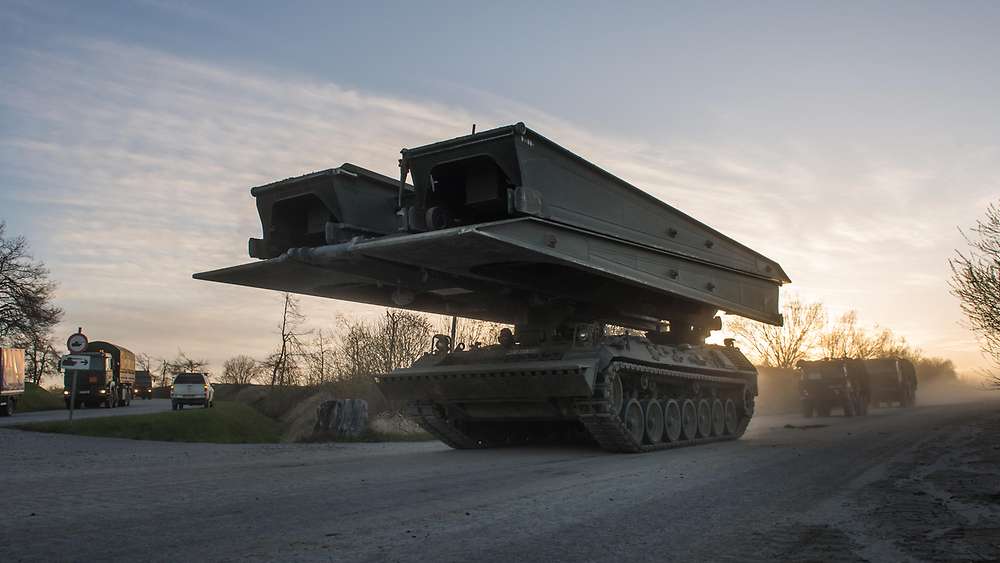To further support the Ukrainian land forces, German Federal Minister Lambrecht has decided to deliver a package of 16 BIBER armoured bridge-laying vehicles. Delivery of the first six systems will take place later this year, starting in the fall. Ten more systems will follow next year. The overall package includes sixteen armoured bridge-laying vehicles as well as transport, repair and training. With the BIBER, the Ukrainian troops can overcome water or obstacles in battle. The announcement comes days after it emerged Germany had given the green light to a request by the defense company Krauss-Maffei Wegmann to produce 100 Panzerhaubitze 2000 howitzers for the Ukrainian Army.
The Biber (Beaver) is a bridge-laying tank made in Germany. It belongs to the group of combat support vehicles and is based on the chassis of the Leopard 1. The hull of the Biber is almost identical to that of the Leopard 1 MBT but without the original turret. In addition to the German Armed Forces, the Armed forces of Australia, Chile, Denmark, Italy (64 manufactured by OTO-Melara), Canada, the Netherlands and Poland use the bridge-layer. The total number is 145 vehicles. It is a highly mobile, rapidly deployable assault bridge that can be used to span natural and man-made obstacles on the battlefield.

The bridge-laying tank with the eponymous rapid tank bridge Biber is intended to overcome cuts in terrain such as bodies of water and gorges up to 20 meters wide in combat, depending on the nature of the terrain. The rapid armored bridge is 22 meters long, 4 meters wide and can be laid out under armor protection within 2 to 3 minutes [. Their weight is about 9.94 tons. The design is approved for the military load class (MLC) 60 or up to about 55 tons. The crew consists of two soldiers, the driver and the commander. The bridge-layer is unarmed, but has a smoke device .
Hull of the Biber bridgelayer is almost identical to that of the Leopard 1 MBT. This military vehicle is powered by MTU MB 838 Ca-500 multi-fuel diesel engine, developing 830 hp. Engine and transmission can be replaced in field conditions within 20 minutes. The torsion bar suspension consists of seven road wheels. A front-mounted hydraulic stabilizer blade can be also used as a dozer blade to prepare the bridging sight, although this operation is normally carried out by other engineering vehicles.
















